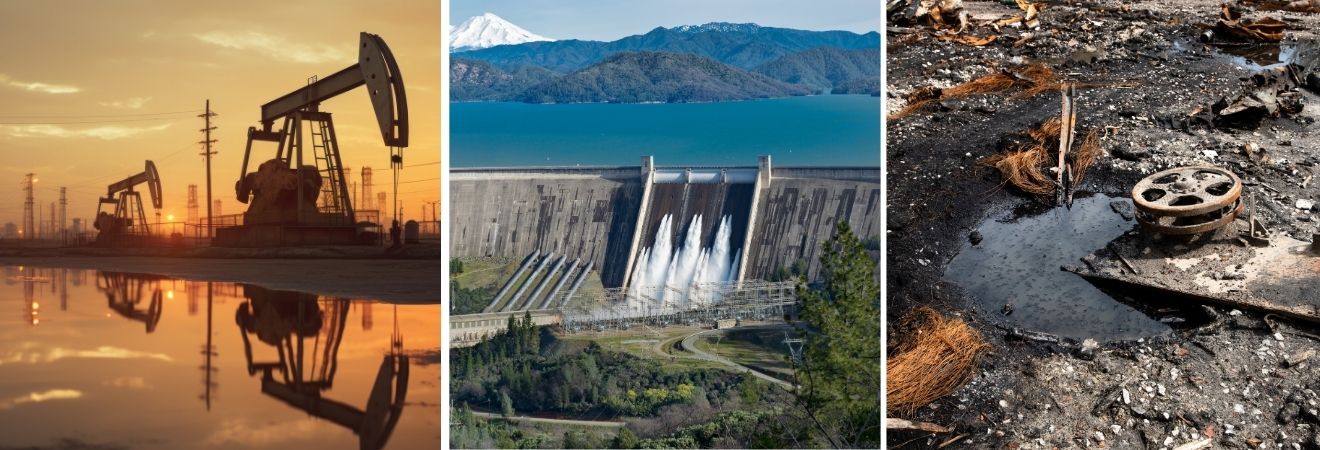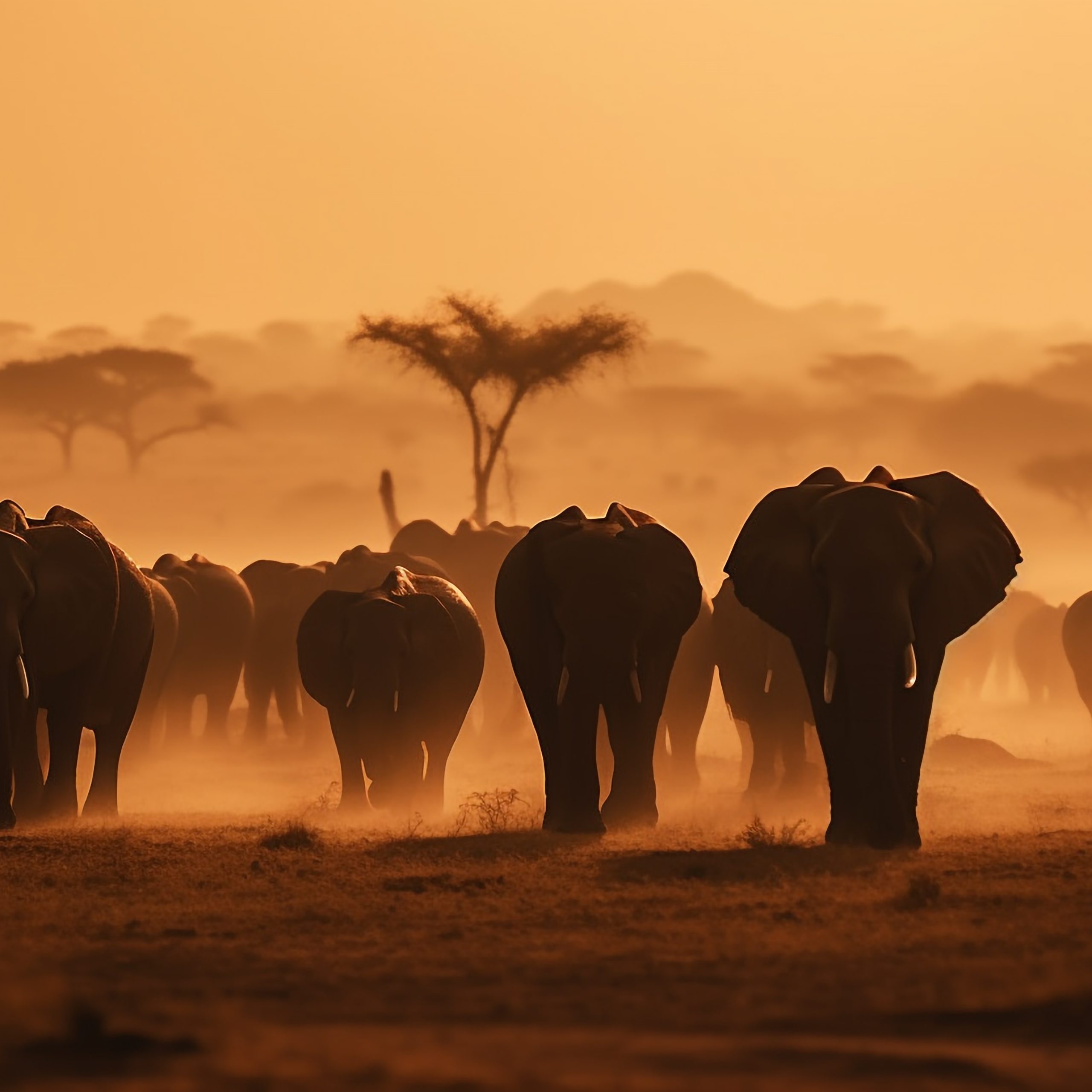OIL RICHES OR ENVIRONMENTAL RUIN? THE FUTURE OF THE DRC AT A CROSSROAD
By Mostafa Sleem updated on May 29, 2024
The use of oil dates back to ancient times, with the earliest known utilization of bitumen, a naturally occurring form of petroleum, in Mesopotamia around 6000 BC for waterproofing boats and construction. Egyptians harnessed oil-based substances for mummification, and by 347 AD, records show that the Chinese were using bamboo pipelines to transport oil.
The modern oil industry began in the mid-19th century with Edwin Drake’s drilling of the first commercial oil well in Titusville, Pennsylvania, in 1859. This milestone marked the dawn of the petroleum era, leading to the development of oil extraction and refining processes that we recognize today. By the early 20th century, the oil industry had achieved global expansion, with significant discoveries in the Middle East, such as the Ghawar Field in Saudi Arabia, and rapid advancements in drilling and refining technologies.
The discovery of oil, coupled with the development of internal combustion engines during the Industrial Revolution, exponentially increased the demand for oil. This period witnessed rapid industrial growth and the expansion of transportation networks fueled by oil. Today, oil is deeply integrated into our daily lives, powering industrial energy, transportation, and even agriculture, earning it the moniker “black gold.”
For many countries, oil reserves provide a strategic advantage, ensuring energy security and economic stability by reducing dependence on foreign energy sources. However, the focus of this discussion is not on global oil dynamics but rather on whether oil can drive development in the Democratic Republic of the Congo (DRC) or become a curse that negatively impacts its population.
In 2024, the world faces an increasingly dire environmental crisis. Climate change has wreaked havoc, with floods and natural disasters becoming more frequent. As the global community prioritizes environmental sustainability, the green transition has emerged as a pivotal concept in the energy landscape. This transition is essential to combat climate change and ensure long-term energy security.
The DRC presents a unique case. With vast potential in renewable energy sources, the DRC could become a pivotal player in the world’s quest for a clean energy transition.

The Double-Edged Sword of Oil Wealth
The late 19th and early 20th centuries saw the emergence of major oil companies, such as John D. Rockefeller’s Standard Oil, which played pivotal roles in shaping the global oil market and marking the beginning of a transformative era. Al Jazeera’s compelling docuseries, “The Secret of the Seven Sisters,” explores oil discoveries across continents and their profound ripple effects on governments and populations.
Nigeria stands as a stark example of the oil paradox in Africa. Oil was discovered in Nigeria’s Niger Delta in 1956, and commercial production quickly positioned Nigeria as one of Africa’s leading oil producers. Despite this vast oil wealth, Nigeria has been plagued by economic mismanagement and corruption. Oil revenue has often been misappropriated, resulting in significant wealth disparity and limited economic development outside the oil sector.
The Niger Delta has suffered severe environmental damage from oil spills, gas flaring, and other forms of pollution, devastating local communities and their livelihoods, particularly those dependent on fishing and agriculture. Oil has also been at the center of numerous conflicts in Nigeria, with the struggle for control of oil resources leading to violence, kidnappings, and insurgencies, especially in the Niger Delta region.
Nigeria has experienced the economic phenomenon known as “Dutch Disease,” where an overemphasis on the oil sector has led to the neglect of other economic areas. This over-reliance on oil has made the country vulnerable to fluctuations in oil prices. Despite its oil wealth, Nigeria faces significant challenges in human development. High levels of poverty, unemployment, and inadequate public services are prevalent, highlighting that oil wealth has not been effectively translated into broad-based development.
A Blessing to Those Who Think Strategically & Sustainably
In contrast, oil was discovered in the North Sea off the coast of Norway in the late 1960s, with the Ekofisk field, discovered in 1969, marking the beginning of Norway’s oil boom. The discovery and subsequent exploitation of oil transformed Norway’s economy, moving the country from relative poverty to one of the wealthiest in the world with a high standard of living.
Norway established the Government Pension Fund Global (often referred to as the Oil Fund) in 1990 to manage the surplus wealth generated by its petroleum income. This fund is now one of the largest sovereign wealth funds in the world, ensuring that oil wealth benefits future generations.
Oil revenue has been strategically invested in public services, infrastructure, education, and healthcare, significantly improving the quality of life for Norwegian citizens. Additionally, Norway has taken a proactive stance on environmental issues, using its oil wealth to invest in renewable energy and sustainable practices.

Charting a Sustainable Path for the DRC: Balancing Fossil Fuels and Renewable Energy
The Democratic Republic of the Congo (DRC) recently put 30 oil and gas blocks up for auction, inviting investors to exploit these resources. This move has faced scrutiny because the blocks are located on peatlands, which are significant carbon sinks. The DRC argues that such criticism is discriminatory, asserting that the burden of climate change falls more heavily on Western countries with higher carbon footprints. As negotiations continue, the future of resource exploitation in the DRC appears to be leaning towards sustainability rather than dependence on fossil fuels.
To ensure the country’s best interests, the DRC must solidify its narrative and strategy. Policymakers need to efficiently utilize resources for the benefit of the nation and its population. This approach requires strategic communication and a coherent narrative. Given the DRC’s significant potential for renewable energy sources, it is crucial to integrate these renewables with the hydrocarbon sector.
The DRC has abundant, though underdeveloped, infrastructure for hydropower and the potential to explore solar and wind power avenues. The Inga Dam on the Congo River, one of the largest hydropower projects globally, is capable of generating up to 40,000 MW of electricity. Investing in such projects can enhance the DRC’s energy security and reduce its carbon footprint. Additionally, the DRC is set to build its value chain in the mining sector through Buenassa, a visionary company planning to establish a refinery plant in the Lualaba region by 2027.
Saudi Arabia, a global leader in oil production, is heavily investing in solar energy through projects like the 2.6 GW Al Shuaibah solar power plant. These examples highlight how the DRC can leverage its renewable resources alongside its hydrocarbon sector to achieve a more resilient and sustainable energy system. Saudi Arabia’s Vision 2030 aims to diversify its economy and reduce reliance on hydrocarbons, demonstrating how the DRC can pursue a similar path.
This transition offers the DRC an opportunity to create positive social impacts, such as job creation in the green energy sector and improved public health. Despite being plagued by war, poverty, and negative perceptions, the DRC, with its raw potential and underdeveloped infrastructure since colonialism, stands at a pivotal point for innovation. With a market of more than 100 million people, there is significant potential to adopt cleaner technologies and sustainable practices in hydrocarbon extraction and processing, laying the foundation for rebuilding the economy and infrastructure from scratch.
Navigating the future of the DRC
The DRC stands at a critical juncture where its vast mineral wealth could either perpetuate a cycle of conflict and poverty or pave the way for a sustainable and prosperous future. Much like Nigeria’s oil curse, the DRC’s abundant resources have historically fueled corruption, environmental devastation, and social unrest. Instead of fostering national development, mining revenues have often been siphoned off by corrupt practices, leaving the population impoverished and the nation’s potential untapped. This resource curse underscores the urgent need for robust governance and sustainable practices to transform the DRC’s natural wealth into a true asset for its people.
The path forward for the DRC is clear but challenging. To ensure a resilient and thriving national economy, the DRC must strategically leverage its wealth to meet domestic needs and contribute to global sustainability efforts. Norway’s success in using its oil wealth to invest in public welfare and renewable energy offers a blueprint for how the DRC can turn its resources into a catalyst for sustainable and socioeconomic development.
The DRC’s journey towards a sustainable future is not just about energy; it’s about creating jobs, improving public health, and fostering innovation. Despite its many challenges, the DRC’s rich natural resources and youthful population present a unique opportunity to rebuild its economy and infrastructure with cleaner, more efficient technologies. By adopting strategic planning and sustainable practices, the DRC can transform its resource curse into a blessing, ensuring prosperity and stability for future generations. The potential for the DRC to emerge as a leader in the green transition is immense—now is the time for decisive action to secure a brighter future.



